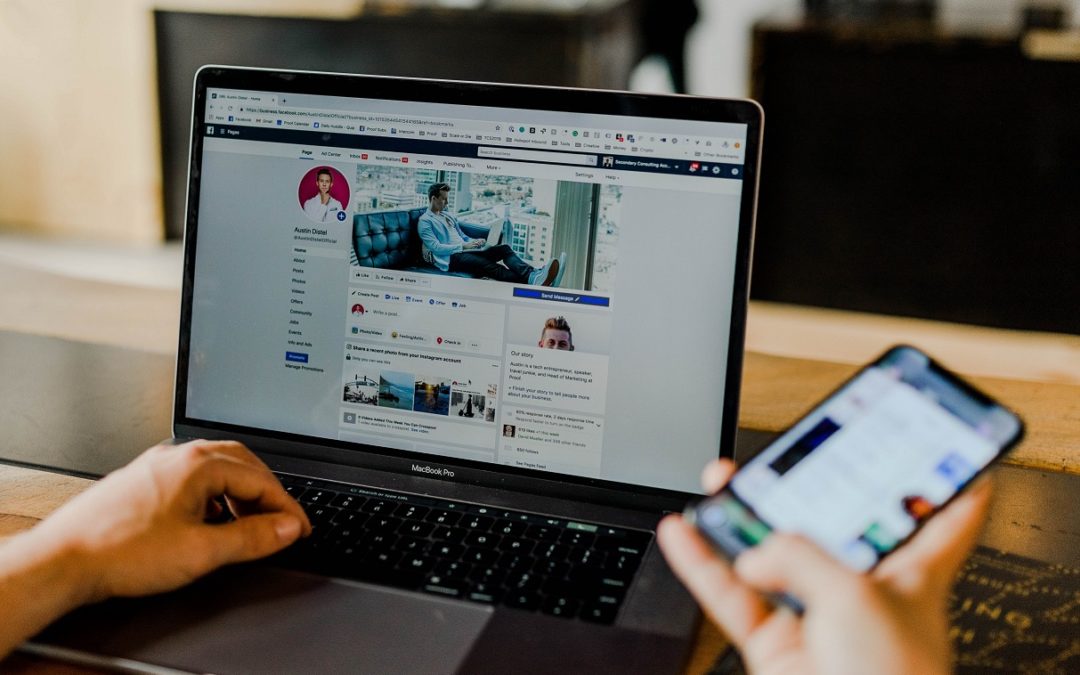How to use Facebook Messenger as a business.
As a business owner, it’s extremely important to have a social media strategy in place for marketing your brand to your customers! With sites like Facebook, Instagram, and Twitter, it’s no longer enough to simply have a website to bring new people in. Thankfully, these sites are designed to make your life easier as a business, and so getting started with your business online is a relatively simple process. Now, let’s talk about using messenger for business!
We’ve previously talked about why email is so important here. It’s true that email is more effective than social media ads, but we’re going to talk about something infinitely better than that.
In Facebook’s early days, you could simply build customer relationships through just posting and commenting – and you certainly still can. However, there is now a new opportunity at your fingertips: Messenger! Since it debuted back in 2011, this app has grown to include 1.3 billion users, which means that’s where you want to be, too!
Messenger vs. Email
So, what does Facebook Messenger have to offer for your business? It used to be that sending mass emails to your subscribers was the best way to market promotions and new ideas. But the average consumer gets dozens of emails every day! Many people either delete all the emails without opening them or some of them have even gone as far as to open a new email account get away from the clutter!
Fortunately, Messenger doesn’t have that problem. Because it’s tied to a user’s Facebook account, it’s much harder to fake, and the response is much better overall. When comparing the two, we’ve seen that emails have an open rate of about 23%, while Messenger has between 70-80%. Not only that, but the click-through rate (people actually engaging with your content) is also higher, with a comparison of 3% to 28%.
Obviously, with over a billion users, those numbers show some enormous potential!
How to Market Effectively Through Messenger
You can use Messenger for advertising just as you would any other social media tool! You can either set up ads that will appear in their Messages list or advertise through messaging them. As with email, you’ll need to get permission to message them directly- when a user clicks on your page, you can set up an automated message asking if it’s ok for you to contact them on Messenger. After that, you’ll be free to send them messages!
You could also set up an advertising campaign for a coupon, voucher or deal that they can get by sending you a ‘keyword’ on Messenger…and BOOM! You’ve got permission to message them with other promotional content.
So, with that in mind, here are some key principles that you should follow to maximise your ROI.
- Identify your target audience. Be specific and personalized. As an example, don’t go after “women over 40.” Instead, target “women between 40-50 who want to start doing crafts.” If it helps, you can develop your ideal user persona and build your campaign for that individual.
- Know what they want. Once you’ve targeted your consumers, then do research and ask them what kinds of things they are interested in. Do they want coupons? Rewards points? Advance access to stuff? Figure out what will have the most impact.
- Be short and sweet. No one is going to read through a detailed message that requires scrolling. Get to the point right away and make sure the one most relevant link is included early. Make it as simple and innocuous as possible; otherwise, you can come across as overbearing. Think about it like this: does it look like a real human being wrote it out, or does it look like a copy & pasted spam bot-message? Even if it is a chatbot message, is the offering desirable enough to initiate a response?
Bottom Line
As messaging apps like Messenger become even more essential, it will become more and more necessary to adopt marketing strategies that utilise them. Most businesses have not hopped on the Messenger bandwagon yet, so now is the perfect time to strike!
Messenger apps, in general, are the future of digital marketing, as the big players (such as Facebook, Viber, WhatsApp, WeChat etc.) look to monetise their efforts further. Keep an eye our for our next blog as we keep you up to date with the latest news in the digital arena.

